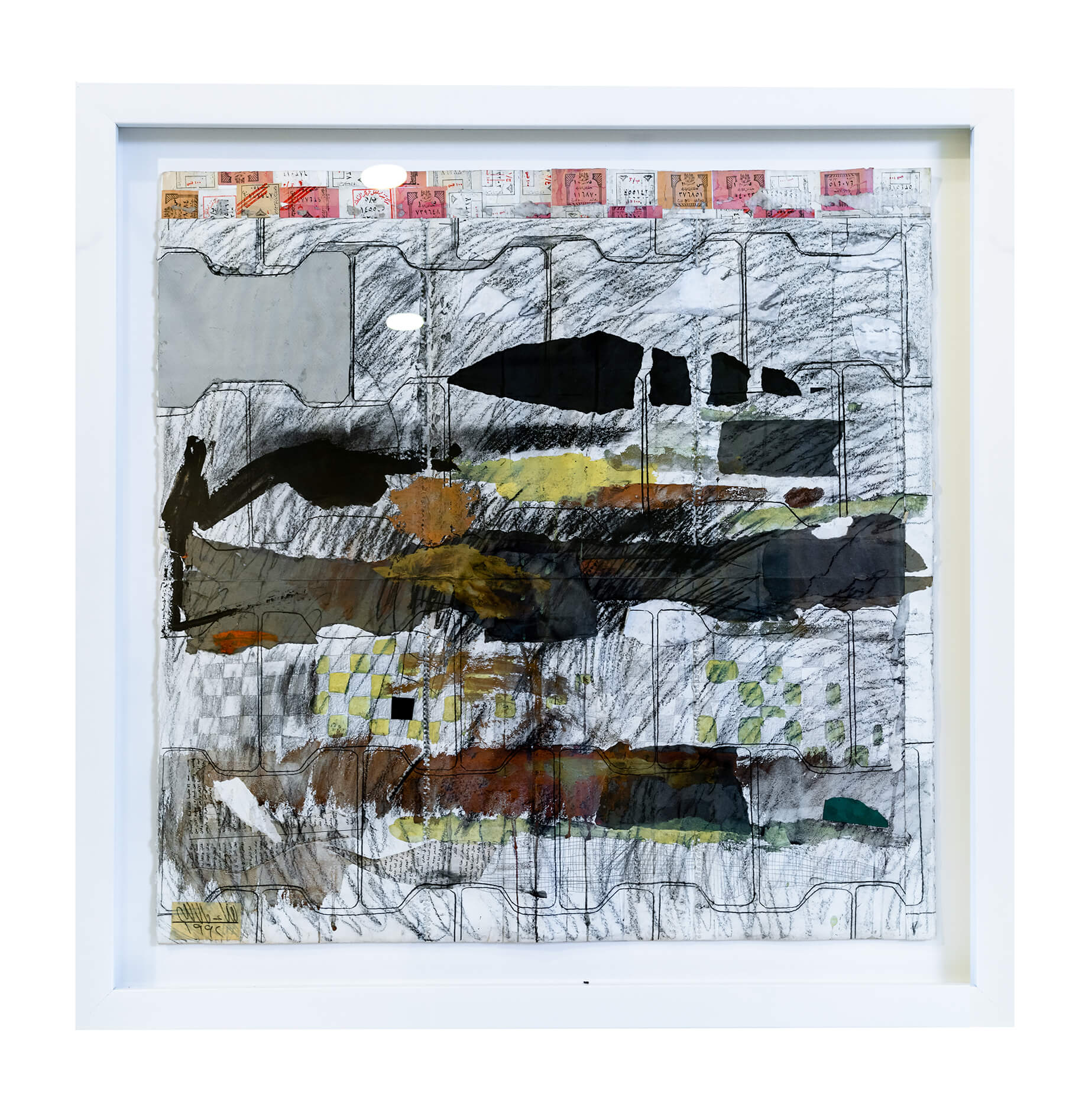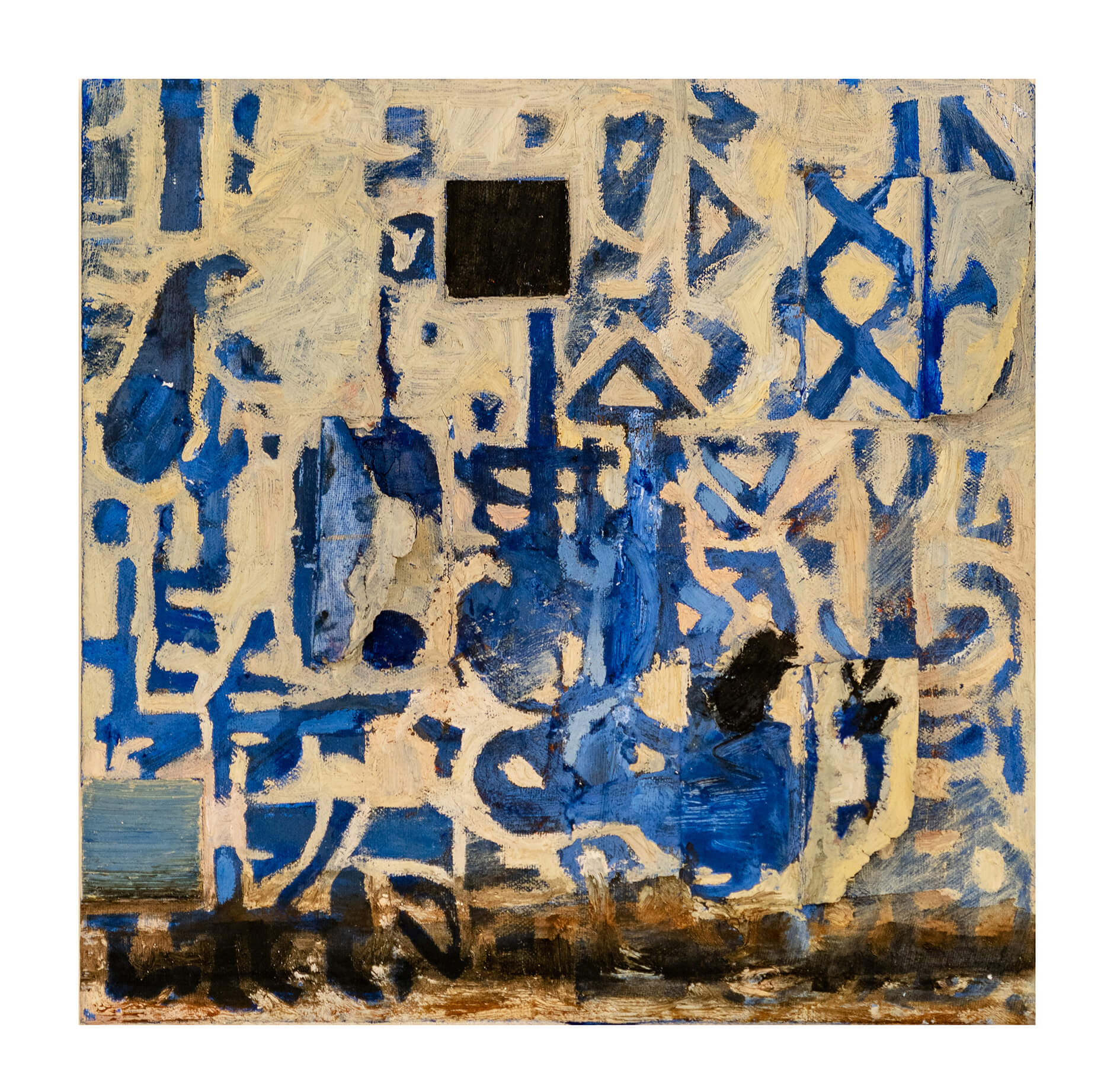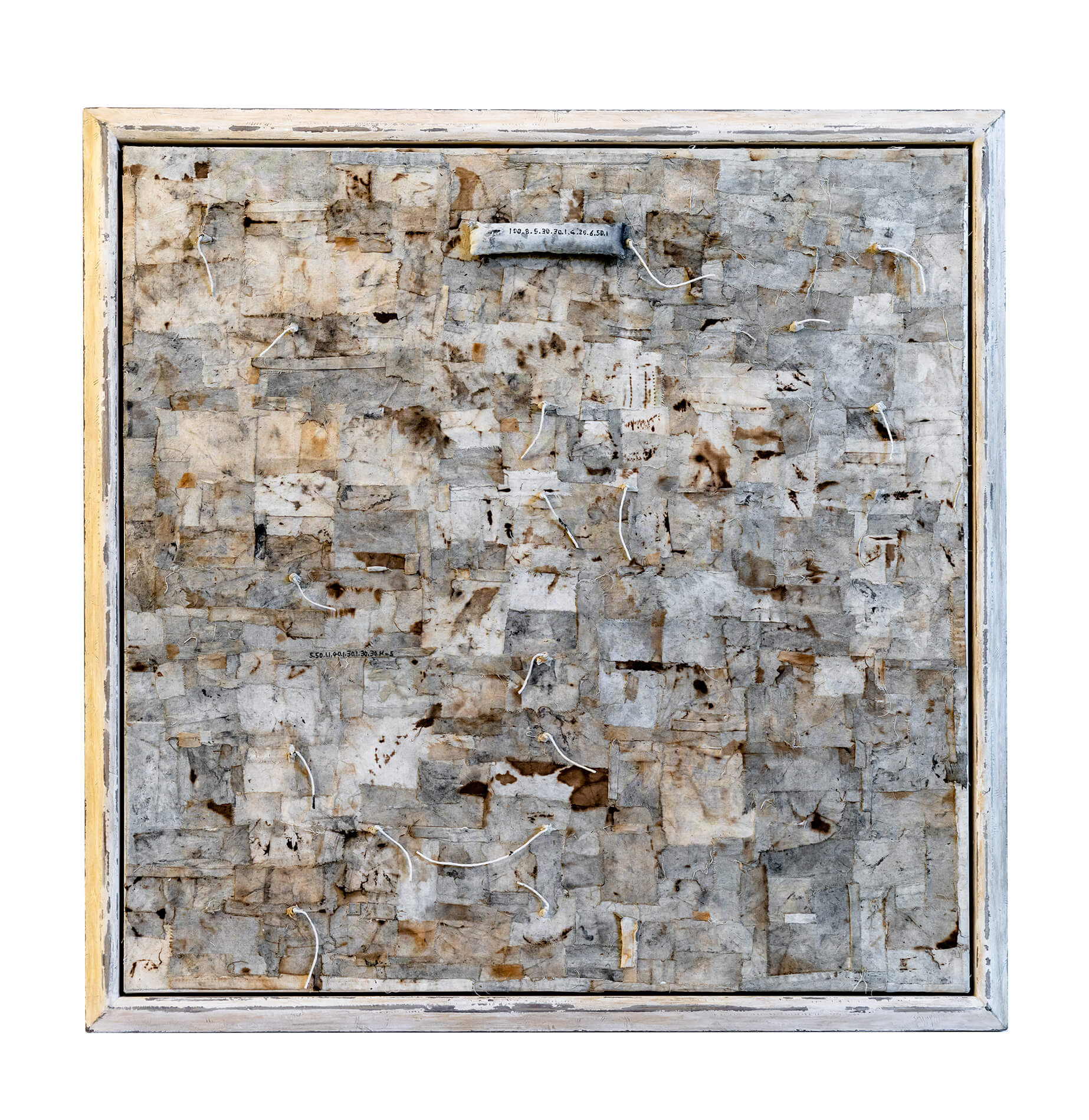Much of Hanaa Malallah’s work recounts the ‘chaos of war’ that she experienced first-hand growing up in Iraq. She explores a search for identity in the aftermath of war as well as the destruction of cultural materials and the forced isolation of artists.
In the 1970s, Malallah developed a technique which she defined as the ‘ruins technique’, whereby she incorporates raw materials including elements of war-ravaged Iraq, into her work. Burnt paper, torn cloth, barbed wire, splintered wood and bullets are examples of pieces of ‘matter’ that feature regularly.
“This technique refers both to ancient and contemporary Iraq. On the one hand, it relates to the damage that objects undergo when they are destroyed – something that I am familiar with, having seen destruction of buildings, objects and relics up close. On the other hand, the Ruins Technique allows me a unique way to express my sensitive reading of shape and colour which I gained from my studies and writings on Ancient Mesopotamia… With this method I am not creating an image of ruins, but I am re-creating the process by which a material becomes a ruin”- Malallah
In the 70s and 80s in Iraq, many female artists were forced to assume gender roles and were forbidden from pursuing their artistic practice. Regardless, Malalah continued to produce work: the very essence of her work is about chaos, invasion and the abuse of power. She received numerous death threats and eventually had no choice but to leave Iraq, where she moved to Paris and then settled London in 2007.
Malalah received a Diploma in Graphic Art from the Institute of Fine Arts in Baghdad where she studied under famed Iraqi artist Shakir Hassan Al Said. She obtained a BA in painting from the Academy of Fine Arts in Baghdad (1988), an MA in painting (2000) and a PhD in the philosophy of painting from the University of Baghdad (2001). She also holds a post-graduate certificate in Islamic and Modern Art from School of Oriental and African Studies, London University. She has taught at the Institute of Fine Arts and the University of Fine Arts in Baghdad and holds a fellowship at the Chelsea College of Arts.
Visit The Foundation
If you are interested in visiting the RAK foundation and its collection, we would be happy to show you around. Contact us for more information.



